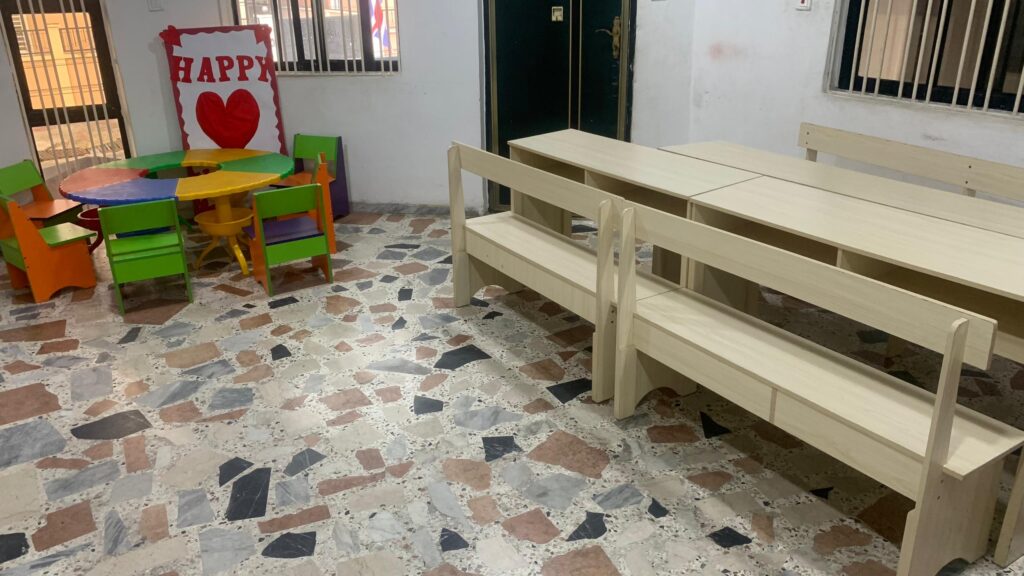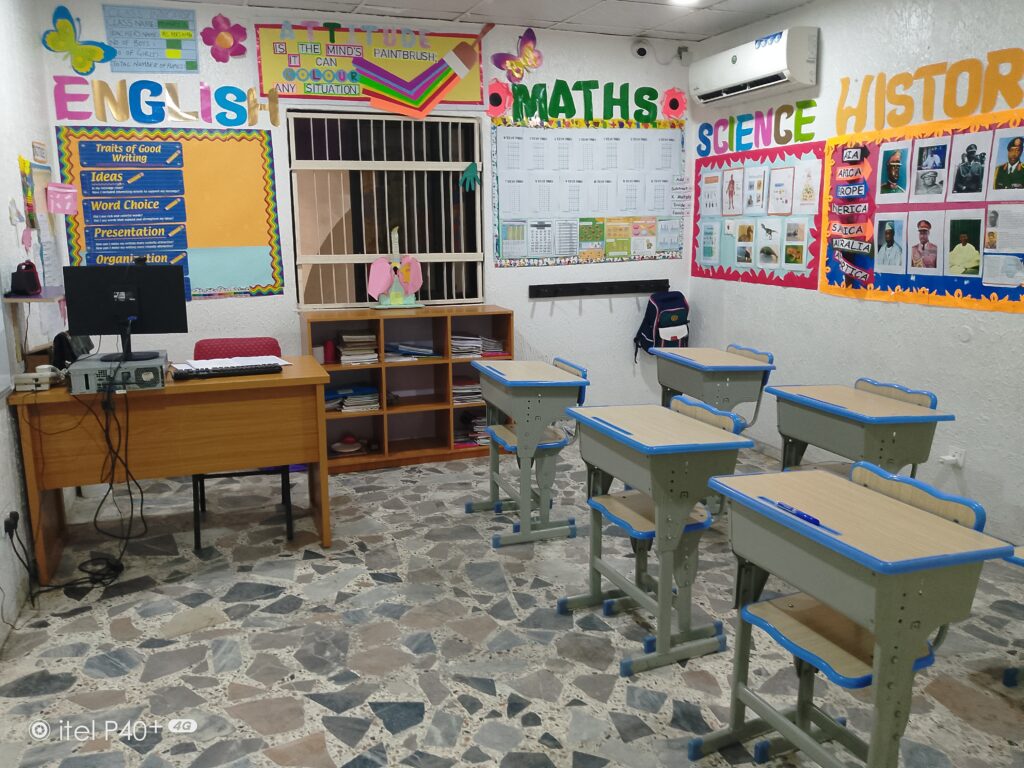Our admission policy
Admission of students into the school is based on either a written entrance examination(for children who can write) or oral interview [for preschoolers) which is usually conducted by the school all throughout the academic session.
The school is grouped into the following departments:
O Preschool
O Reception
O Primary
PRESCHOOL (Early Years Delivery)
The essence of pre-primary education will be to:
- Effect a smooth transition from the home to the school
- Prepare the child for the primary level of education.
- Provide adequate care and supervision for the children while their parents are at work.
- Inculcate in the child, the spirit of inquiry and creativity through the exploration of nature, the environment, art, music and play with toys etc.
- Learn good habits especially good health habits
- To teach the rudiments of numbers, letters, colors, shapes, forms etc. through play
- To raise attainment in reading, writing, mathematics, understanding the world, physical development, expressive art and design and personal, social and emotional
development. - To develop smooth transition from Preschool to Nursery and Nursery to Year 1.
- To ensure that provision in Early Year Foundation Stage (EYFS) is outstanding in all areas.
- To develop questioning across the delivery.

This section admits children from pre-school ages of 3 months to age 1years. It is placed under the leadership of an experienced Head of School, assisted by a number of dedicated teachers: with Early Years Foundation Stage (EYFS) background and a rich blend of Nigerian/British curriculum. This section also places emphasis on safety and comfort. Priority is given to individual contact to ensure that each child is guided into activities and learning experience appropriate for him/her.
No undue emphasis is placed on formal academic work. Newfield School has high expectations for all its learners.
RECEPTION School
All children in the nursery section follow a curriculum called the Early Years Foundation Stage (EYFS) and this is broken down into 3 prime aspects and 4 specific areas of
learning.
Personal, social and emotional development
One of the prime aspects of your child’s first year at school will be a focus on their personal, social and emotional development, and their teacher will be aiming to give them a good start to their school experience by helping them form positive relationships, build confidence and self-awareness, as well as manage their feelings and behaviour.
Physical development
Physical development is important too: you will hopefully notice that they are starting to move more confidently, an improvement in their hand eye coordination and to understand how to look after themselves and be healthy.
Communication
The final prime area each year is communication. Children will learn through speaking and listening first and foremost also, through stories, in conversations with adults and their friends, or through facial expression, movement or dance.

For the specific areas of learning, your child will learn the basics of literacy — reading, writing and phonics.
Children learn about the world, too, exploring different people and communities, and how we can use different forms of technology in our learning. Finally, imagination and creativity are championed in the area of expressive arts. Your child will explore different media and materials and be encouraged to use their imagination in a range of different
experiences.
PRIMARY School
Primary Education is the initial stage of education and has as its basic aim to create, establish and offer opportunities to all children, regardless of age, gender or country of origin, to achieve a balanced cognitive, emotional and psychomotor development.
Our basic goal of a quality primary education is to establish, create and offer opportunities to kids of various ages as they enter the education system. Through a balanced curriculum, it is intended to provide emotional and cognitive instruction and to assist in social development. A quality primary education such as ours allows a student to thrive, to learn how to participate and to study and master the basics of the main subjects.
In the Primary School, we pride ourselves on knowing each child as an individual in order to help them make progress. Teachers in the Primary School plan to scaffold success for all learners from their point of entry.
This means that learning opportunities are planned so that all students are challenged appropriately, by providing work that is well suited to their individual needs. Most of all, we are interested in the learning process-learning how to learn and how to apply skills and knowledge across an ever-increasing spectrum of experience. From the earliest age we ensure that children have an enjoyable experience of school and are motivated to learn and improve.

This positive attitude is supported by a team of highly professional teachers who are themselves engaged in lifelong learning and model effective pedagogy.
Creating Fun with our
EXTRA CURRICULAR ACTIVITIES
The school operates the following clubs and societies:
CHILDREN WITH LEARNING CHALLENGES
At Newfield School, the rules for primary education are put in place to assist children of all ages, genders and capabilities. For children with special educational needs, there are exceptions that range from gracing and mastery of subjects, including social interactions, to attendance requirements.
For children with severe developmental delays, we believe there are no age restrictions for primary education. Our team of special educators that are in place to assist children, they ensure that all pupils thrive not only in elementary school but through the rest of their educational career through differentiated instruction and other learning support techniques.
We strongly believe that many students with special educational needs who
have these learning difficulties addressed before third grade can master more skills, which increases their chances of attaining a successful academic career later in life.

For children with severe developmental delays, we believe there are no age restrictions for primary education. Our team of special educators that are in place to assist children, they ensure that all pupils thrive not only in elementary school but through the rest of their educational career through differentiated instruction and other learning support techniques. We strongly believe that many students with special educational needs who have these learning difficulties addressed before third grade can master more skills, which increases their chances of attaining a successful academic career later in life.





